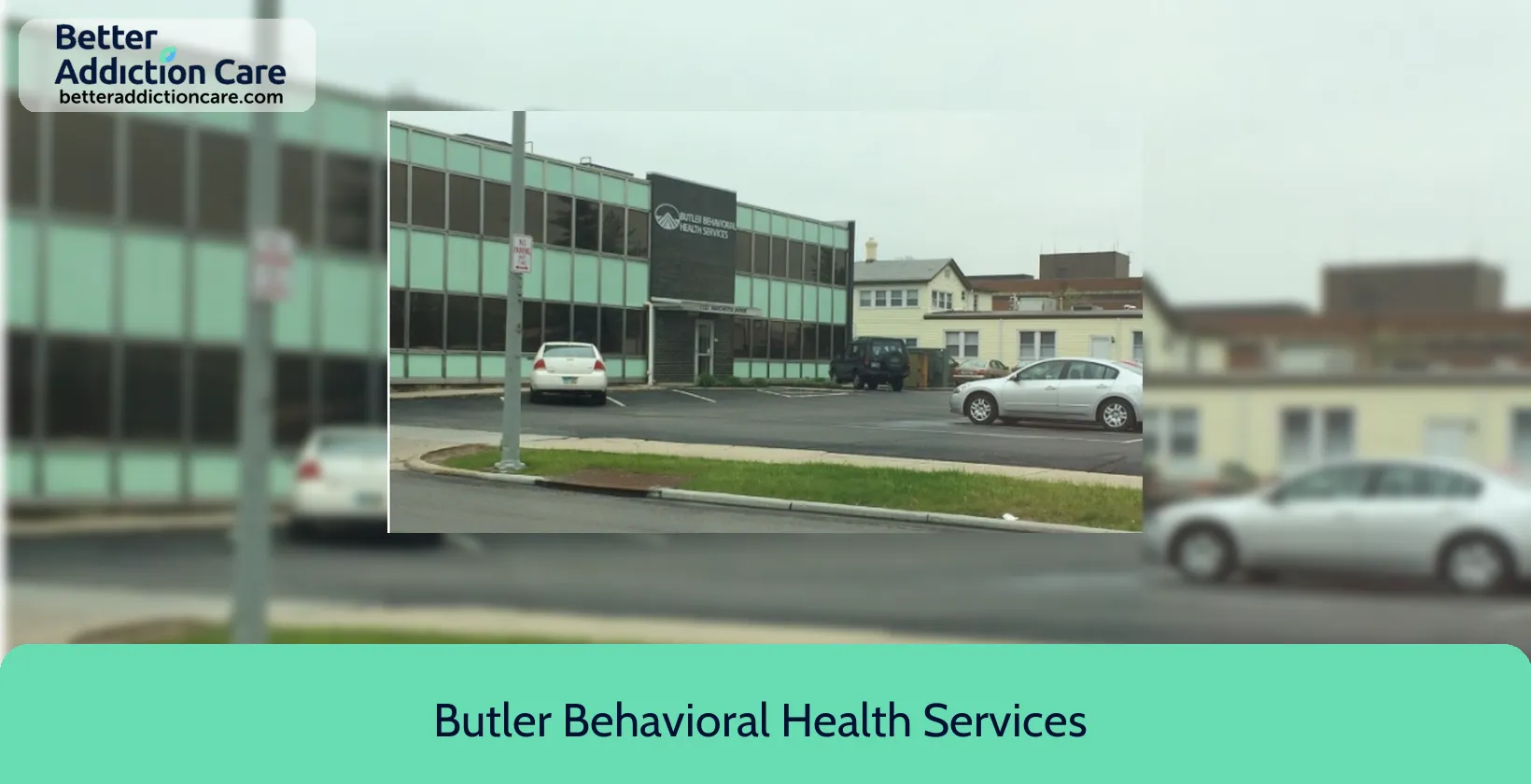Butler Behavioral Health Services - Middletown Counseling Center
Overview
The Middletown, Ohio-based Butler Behavioral Health Services provides extensive outpatient treatment options for patients of all ages, including those in recovery from addiction. The services of this mental health care facility are available to a wide range of individuals due to its acceptance of several payment methods, such as self-pay, Medicaid, Medicare, and a few private insurance policies.
Their counseling services are intended to provide a safe haven where people may honestly talk about their struggles, pinpoint the situations that lead to their drug abuse, and create constructive coping mechanisms for their recovery. Individual treatment plans are used to decide how often each client should have sessions in order to provide them with the degree of care required for their recovery.
Butler Behavioral Health Services is unique in that they have an integrated care program called Health Now. This program provides organized, comprehensive care that attends to all aspects of a client's treatment requirements, going beyond the scope of typical therapy. This team works directly with patients to handle the day-to-day operations of their care, such as making appointments, allocating funds for their course of treatment, and successfully corresponding with medical professionals. They work in tandem with other community service providers to guarantee that clients get all-encompassing, seamless care that is customized to fit their specific needs.
The approach of the center highlights the individuality of every customer. Realizing that every person's path is unique, they create individualized treatment plans that are suited to the client's particular skills, requirements, and resources. In order to offer compassionate and all-encompassing treatment, Butler Behavioral Health Services prioritizes a holistic knowledge of its clients, taking into consideration cultural settings, environmental influences, and family dynamics.
Butler Behavioral Health Services is dedicated to helping young people by fostering stronger family ties in addition to providing individual treatment. In order to promote the youth's rehabilitation and general well-being, their treatment method involves including parents or substitute caregivers as essential participants in the therapy process and bolstering family resources.
The firm is very focused on providing services that are practical and targeted. Every treatment plan has specific goals that motivate clients to take little steps in the direction of significant change. Butler Behavioral Health promotes a feeling of realistic hope in its clients by carefully collaborating with them to develop attainable objectives. This is seen to be an essential component of effective therapy.
Butler Behavioral Health Services' dedication to providing excellent, person-centered care that satisfies exacting criteria of excellence is shown by their accreditation by the Commission on Accreditation of Rehabilitation Facilities (CARF).
Butler Behavioral Health Services - Middletown Counseling Center at a Glance
Payment Options
- Cash or self-payment
- Medicaid
- Medicare
- State-financed health insurance plan other than Medicaid
- Private health insurance
Assessments
- Screening for tobacco use
- Comprehensive mental health assessment
- Comprehensive substance use assessment
Age Groups
- Seniors or older adults
- Young adults
- Children/adolescents
- Adults
- Seniors
Ancillary Services
- Intensive case management
- Case management service
- Chronic disease/illness management
- Diet and exercise counseling
- Family psychoeducation
Highlights About Butler Behavioral Health Services - Middletown Counseling Center
6.77/10
With an overall rating of 6.77/10, this facility has following balanced range of services. Alcohol Rehabilitation: 8.00/10, Drug Rehab and Detox: 6.00/10, Insurance and Payments: 6.00/10, Treatment Options: 7.09/10.-
Alcohol Rehabilitation 8.00
-
Treatment Options 7.09
-
Drug Rehab and Detox 6.00
-
Insurance and Payments 6.00
Treatment At Butler Behavioral Health Services - Middletown Counseling Center
Treatment Conditions
- Mental health treatment
- Substance use treatment
- Co-occurring Disorders
- Alcoholism
- Opioid Treatement
Care Levels
- Outpatient
- Detoxification
- Outpatient detoxification
- Intensive outpatient treatment
Treatment Modalities
- Couples/family therapy
- Group counseling
- Cognitive behavioral therapy
- Dialectical behavior therapy
- Integrated Mental and Substance Use Disorder treatment
Ancillary Services
Languages
- Sign language services for the deaf and hard of hearing
- Spanish
Special Programs
- Clients with co-occurring mental and substance use disorders
- Criminal justice (other than DUI/DWI)/Forensic clients
- Clients who have experienced trauma
- Children/adolescents with serious emotional disturbance (SED)
- Persons 18 and older with serious mental illness (SMI)
Contact Information
Read our Most Recent Article About Drug Addiction
DISCLAIMER: The facility name, logo and brand are the property and registered trademarks of Butler Behavioral Health Services - Middletown Counseling Center, and are being used for identification and informational purposes only. Use of these names, logos and brands shall not imply endorsement. BetterAddictionCare.com is not affiliated with or sponsored by Butler Behavioral Health Services - Middletown Counseling Center.









